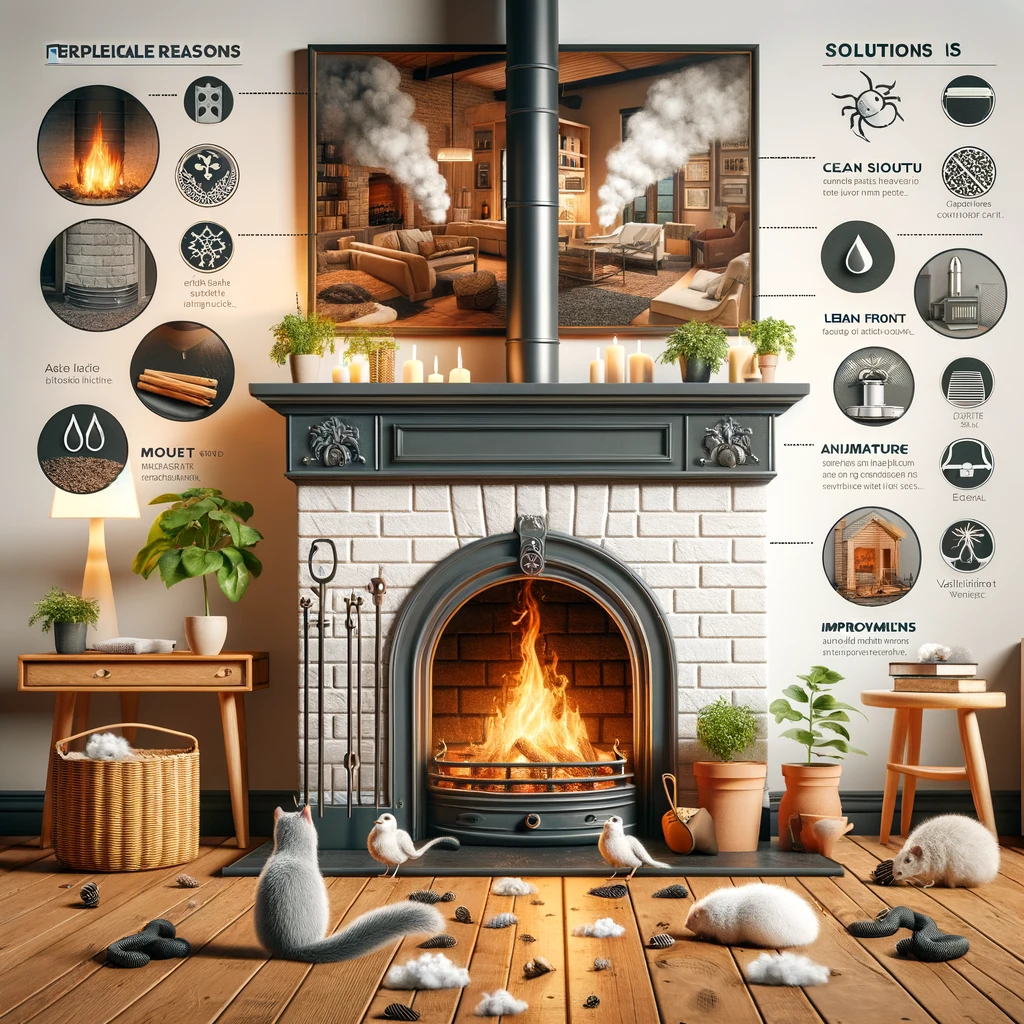
A fireplace adds warmth and ambiance to a home, but sometimes it can emit unpleasant odors. Understanding why your fireplace smells bad is the first step to finding a solution. Here are ten common reasons for fireplace odors and their solutions.
1. Accumulated Soot and Creosote
Regular Cleaning: Buildup of soot and creosote can cause a foul smell. Scheduling regular chimney cleanings can eliminate these odors.
2. Excess Moisture
Install a Chimney Cap: Moisture can lead to musty smells. A chimney cap can prevent water from entering the chimney.
3. Animal Nests or Debris
Remove Nests and Install a Guard: Animals and debris in the chimney can cause bad odors. Removing nests and installing a chimney guard can prevent this issue.
4. Negative Air Pressure in Home
Improve Ventilation: Negative air pressure can draw odors into the house. Improve home ventilation to address this problem.
5. Ash and Debris in the Firebox
Clean the Firebox Regularly: Leftover ash and debris can smell. Regular cleaning of the firebox can help.
6. Mold Growth
Address Moisture and Clean the Chimney: Mold in a damp chimney can cause a musty odor. Fix leaks and clean the chimney to remove mold.
7. Unused for Long Periods
Air Out Regularly: A fireplace that’s not used for long periods can develop a stale smell. Regularly airing out the room can help.
8. Poorly Seasoned Wood
Use Properly Seasoned Wood: Burning unseasoned wood can produce unpleasant smells. Ensure you use well-seasoned wood for burning.
9. Downdrafts
Install a Draft Guard: Downdrafts can bring chimney odors into your home. A draft guard or a top-sealing damper can prevent this.
10. Faulty Chimney Liner
Inspect and Repair Liner: A damaged liner can cause odors. Have your chimney liner inspected and repaired if necessary.
Understanding the source of your fireplace’s bad smell is essential to finding the right solution. Regular maintenance and addressing specific issues like moisture, debris, and air pressure can significantly reduce or eliminate these odors.
